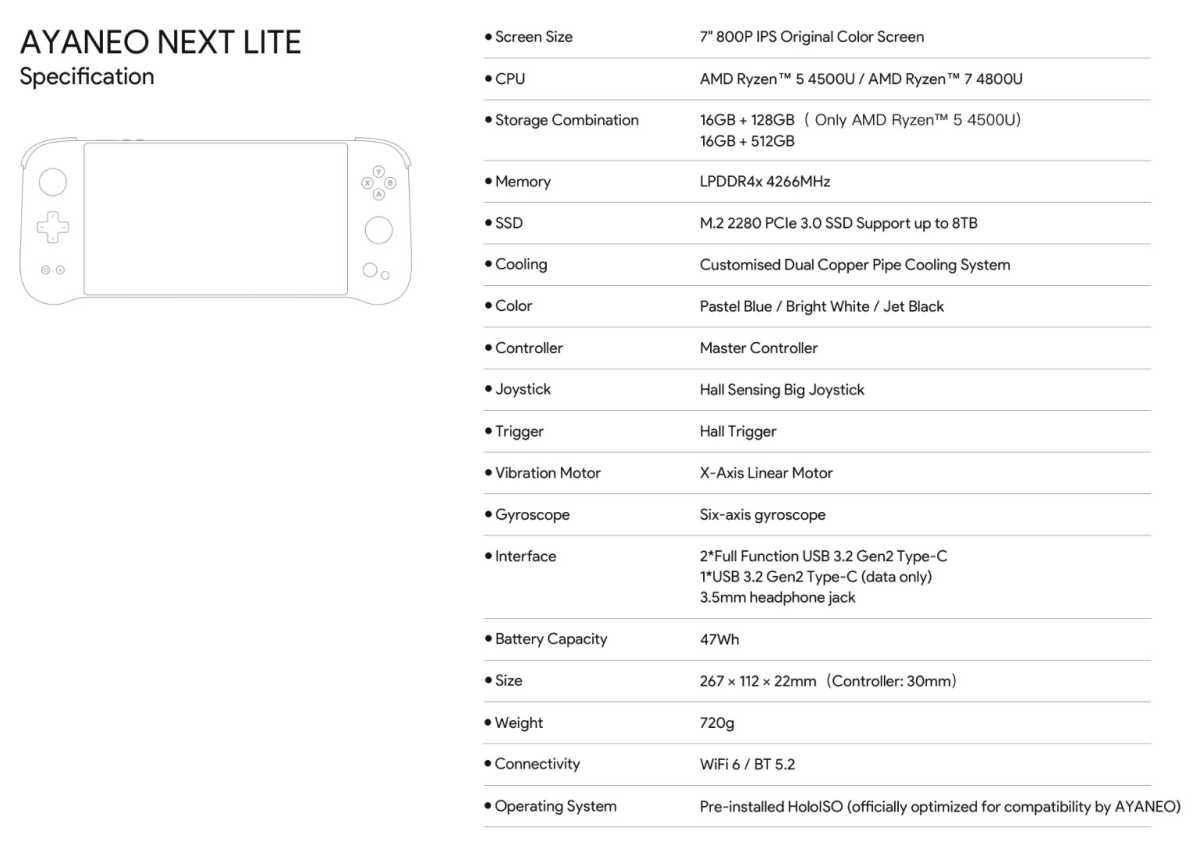We’ve seen a lot of competition for Valve’s Steam Deck pop up in the nearly two years since it hit the market. While companies like Asus, MSI, and Lenovo have all put their spin on the handheld gaming PC form factor, they all diverge from the original in one major way: They run Windows instead of the Linux-based SteamOS. Ayaneo, a Chinese manufacturer that was one of the first to get a Steam Deck competitor out the door, is looking to fill this niche with its latest device, the Next Lite.
Update: According to Ayaneo’s page, the Next Lite is running a self-optimized version of HoloISO, which is an open-source version of SteamOS that’s described as “99% of the way there” on its Githgub page. Running a community-updated operating system instead of one supplied directly by Valve might be a concern for some users, but it’s also possible to manually install Windows on the device.

Ayaneo has also stated that the Next Lite runs on the Ryzen 5 4500U or Ryzen 7 4800U APU along with more technical specifications, but has not yet set a launch date or price. Original story follows:
Based on the company’s promotional page, coming with SteamOS built-in is indeed the biggest differentiator for this model, which otherwise looks nearly identical to the original Ayaneo Next from 2022. The promotional page says that the gadget uses a 7-inch, 800p screen (identical to the original Steam Deck) and a 47 watt-hour battery. Other hardware details haven’t been revealed, but it seems like it’s a safe bet that this is running on the same Ryzen 7 5825U hardware as the Next, or something very similar to fit into the same case. More details may be revealed tomorrow, when “subscriptions open.”

Ayaneo
Running SteamOS might be a huge plus for prospective gamers. Integration with Steam and its ubiquitous store is a huge part of the console-style all-in-one experience of the Steam Deck. Despite needing to run many games through the Proton Linux compatibility layer, most AAA games seem to perform beautifully on the relatively low-power hardware. Having that ease of use and integration on another device could be a big mark in its favor. Valve has been developing SteamOS since 2013, when it tried and failed to make Linux-based “Steam Machines” competitors to consoles like the Xbox and PlayStation.
Ayaneo is really stressing the “Lite” part of the device’s name here, saying that it’s a “cost-effective choice” and it’s “lowering the entry barrier.” But consider the context. The Ayaneo Next currently costs $1,315 from the company’s official store, and according to promotional graphics, that’s already “$966 off.” So however little the Next Lite costs, it seems extremely unlikely that it’ll be competitive with the Steam Deck or other handhelds from major players, all of which are well below the $1,000 USD mark.




